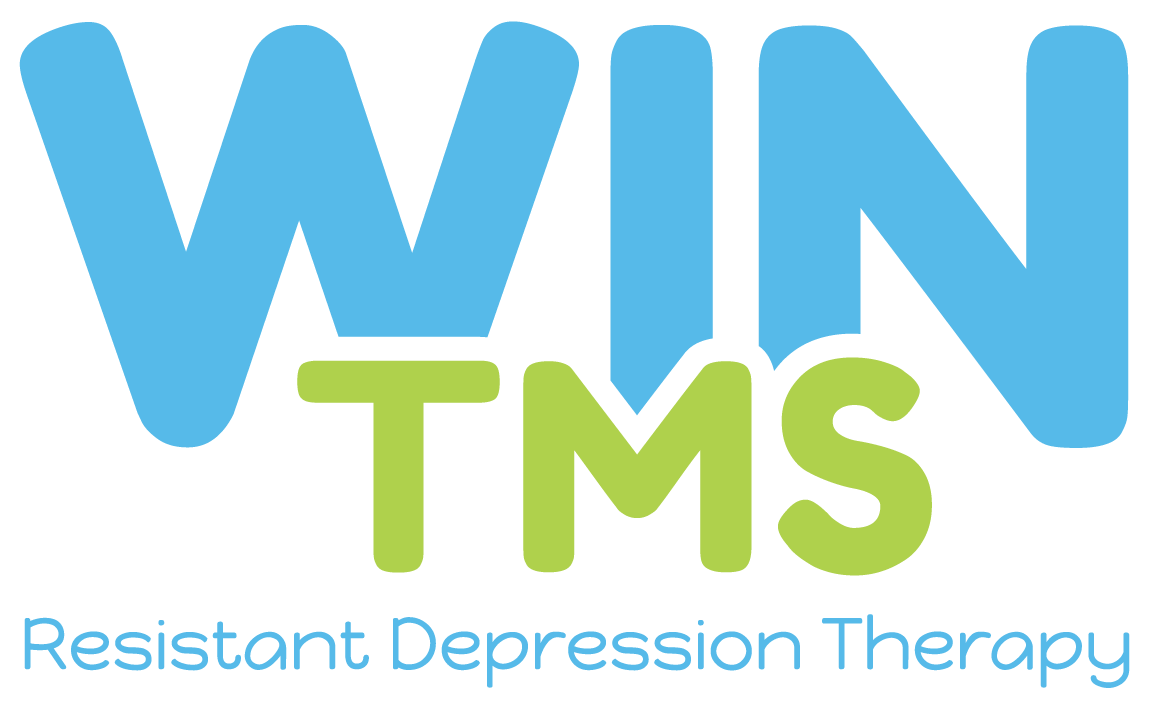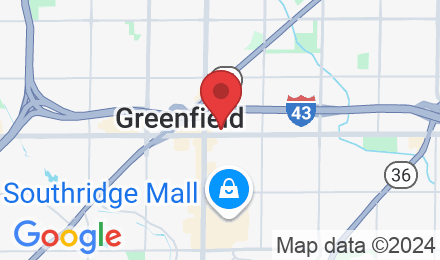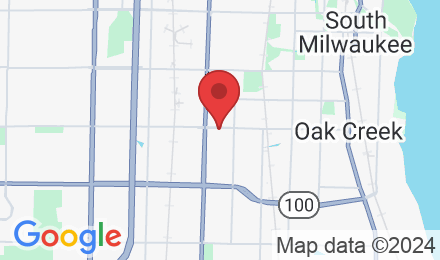Experience Remission from Depression, with TMS.
TMS (transcranial magnetic stimulation) is designed to help people who suffer most from depression to start feeling better again.
4.8 Million Treatments Administered
83% of Patients See Improvement
62% of Patients See Full Remission
What is TMS?
Transcranial Magnetic Stimulation uses strong, magnetic pulses distributed through a coil to regulate the neural activity of brain structures associated with depression.
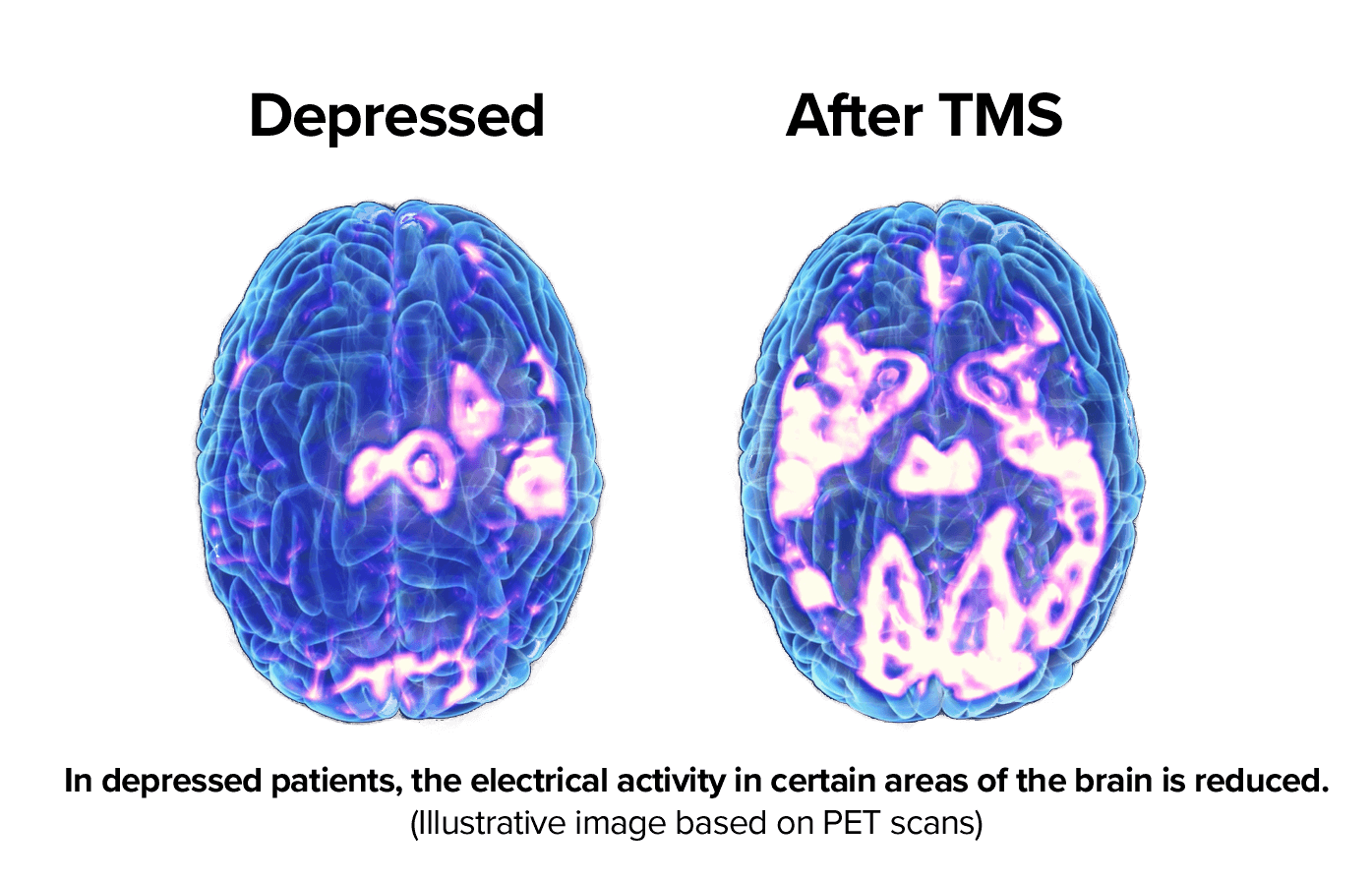
No Systemic Side Effects
While you may feel slight pressure on top of your head, most patients adapt to the sensation after just a couple of sessions.
Medication Free
Rest assured, you do not have to start a new medication regimen throughout TMS.
21 Day Difference
An analysis of 1,753 patients showed that the average patient achieved a sustained response after just 16 treatments.
Hear From Our Patients
Andrew

"The staff is very helpful and friendly. They talk you though the entire process and set expectations appropriately. TMS is a massive game changer for mental health. The staff is very helpful and friendly. They talk you though the entire process and set expectations appropriately. TMS is a massive game changer for mental health."
Jess
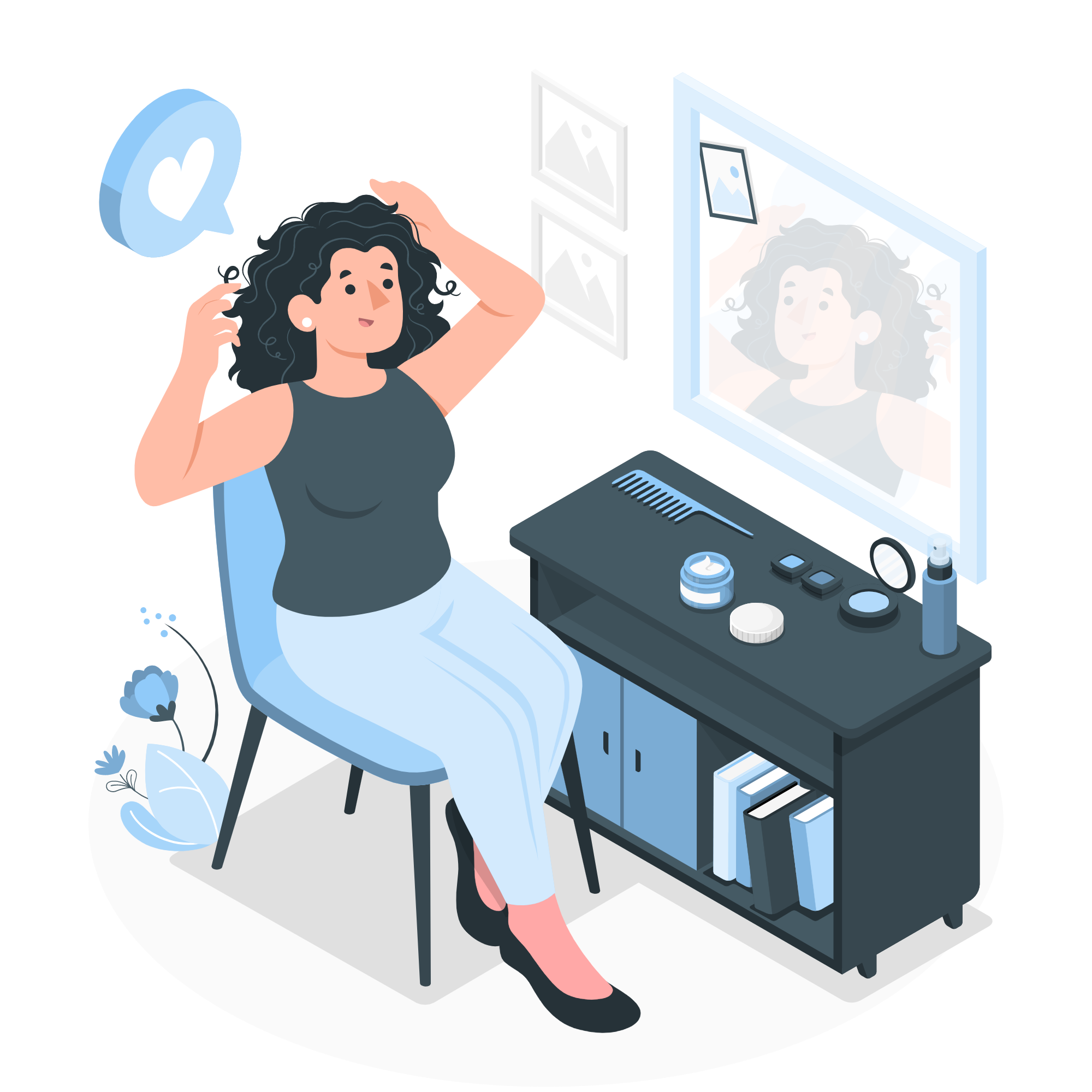
"As a nurse, I was initially skeptical, but I was struggling so much with depression and the impact on my life, I decided to do it. I am now a believer and would recommend this to anyone who has had longstanding depression that has not responded to medication. The treatment does take some getting used to, however, my treatment provider was fabulous. I am so glad I did this as I feel like a new person and am so very thankful."
Tina
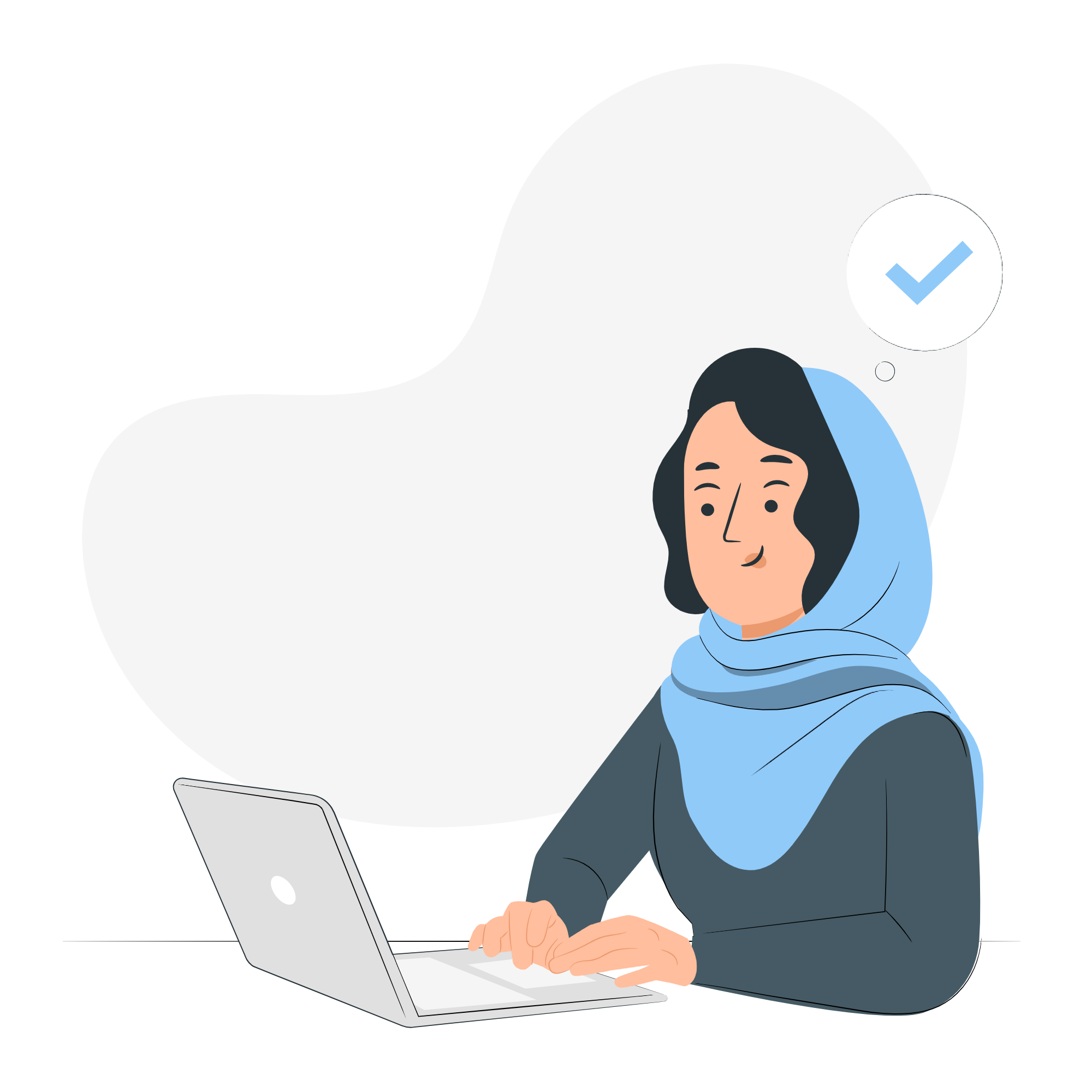
"I cannot say enough great things about WIN TMS! They saved my life. I came to them at my darkest point after trying inpatient, therapy and multiple types of medications. I could have gone to a TMS place closer to me, but from the time I had my initial consult, I knew this was the perfect fit for me. I think the reason that patients get amazing results at WIN TMS is because of their staff. They are highly skilled, empathetic, encouraging and positive."

Real MagStim Stories
Highly Effective
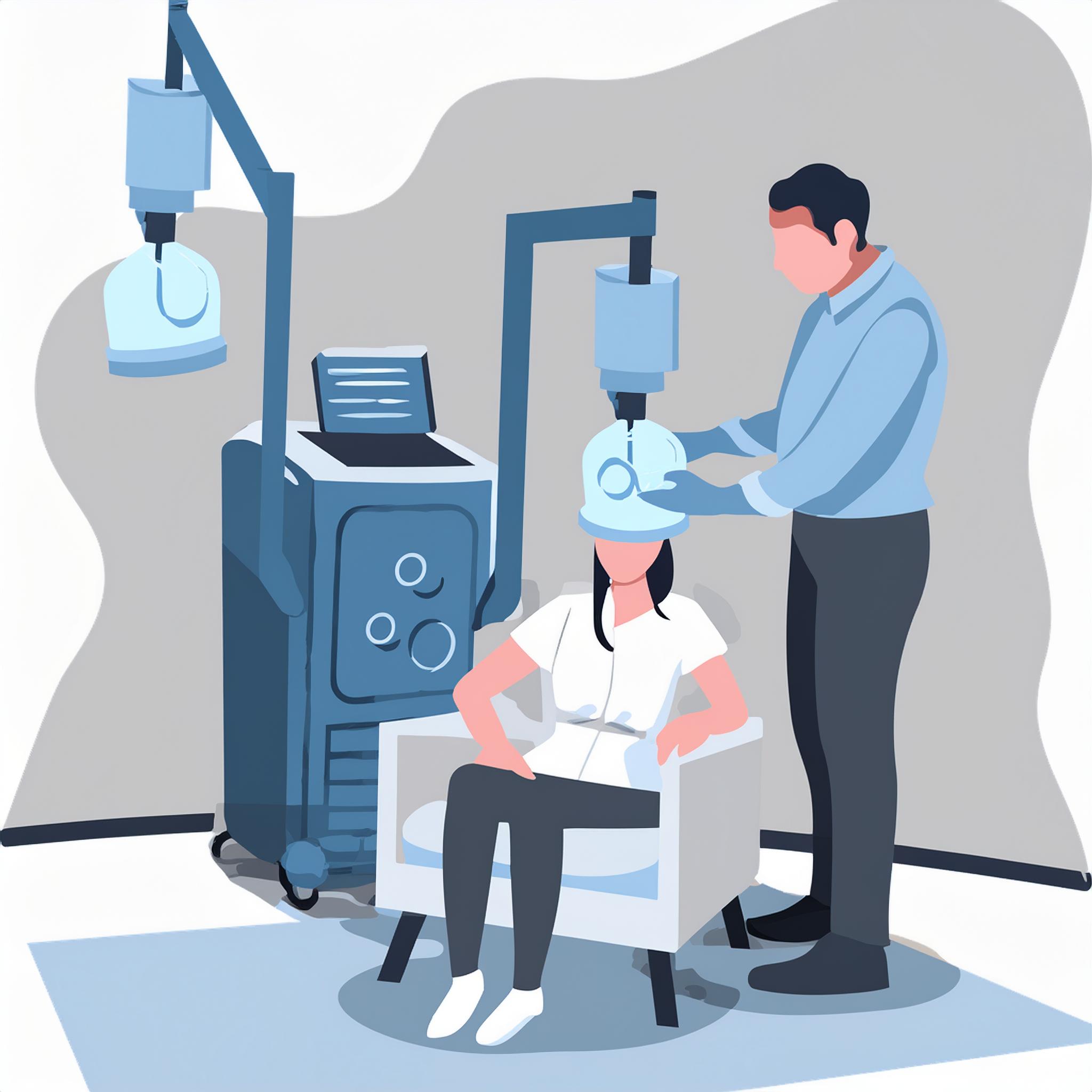
About 83% of patients who complete a full course of TMS show a clinically meaningful response and about 62% experience a full remission, meaning their symptoms go away completely
Fits in Your Schedule
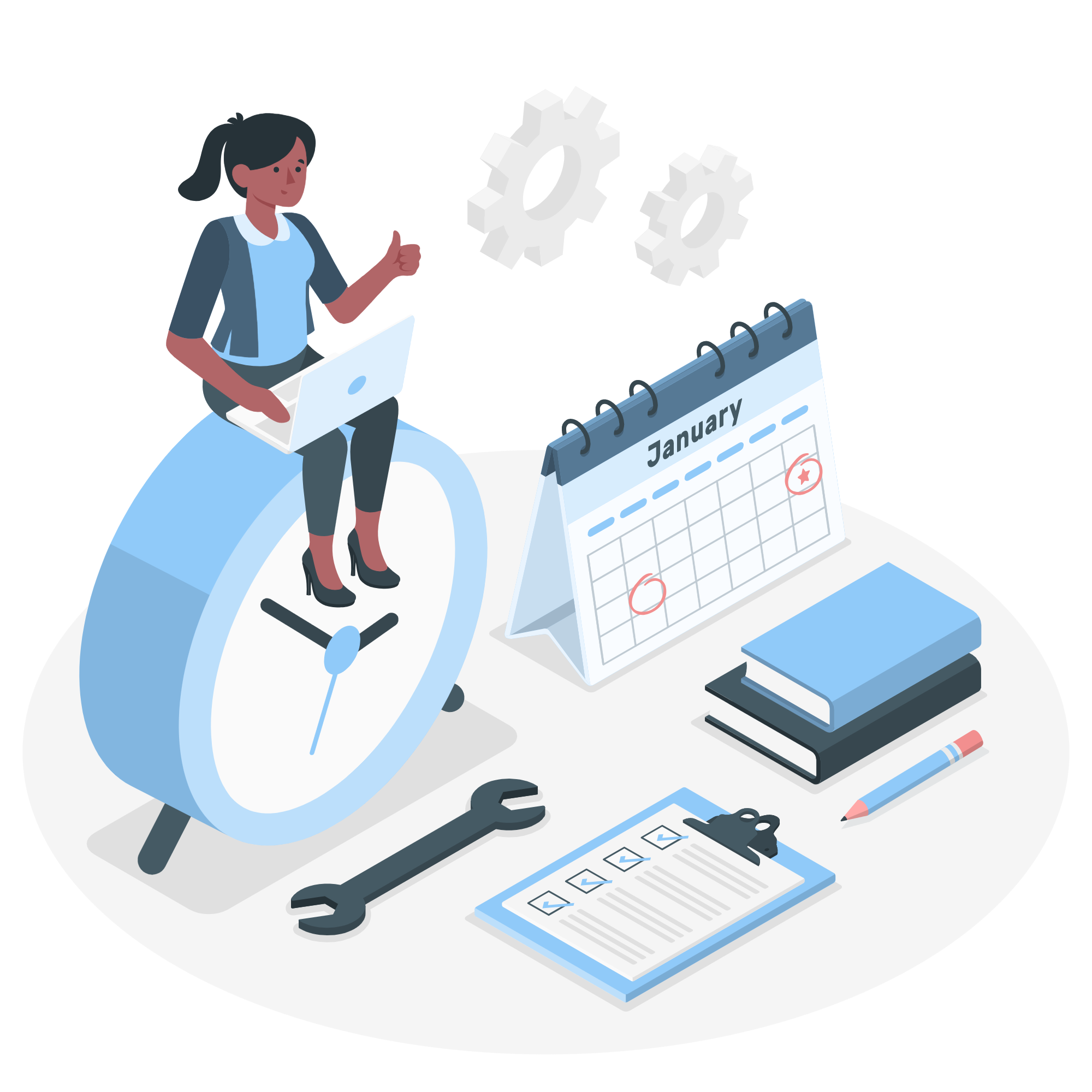
Sessions are about 20 minutes and you can drive to and from your appointments. The full course covered by insurance usually takes about 6-8 weeks to complete.
Covered by Insurance
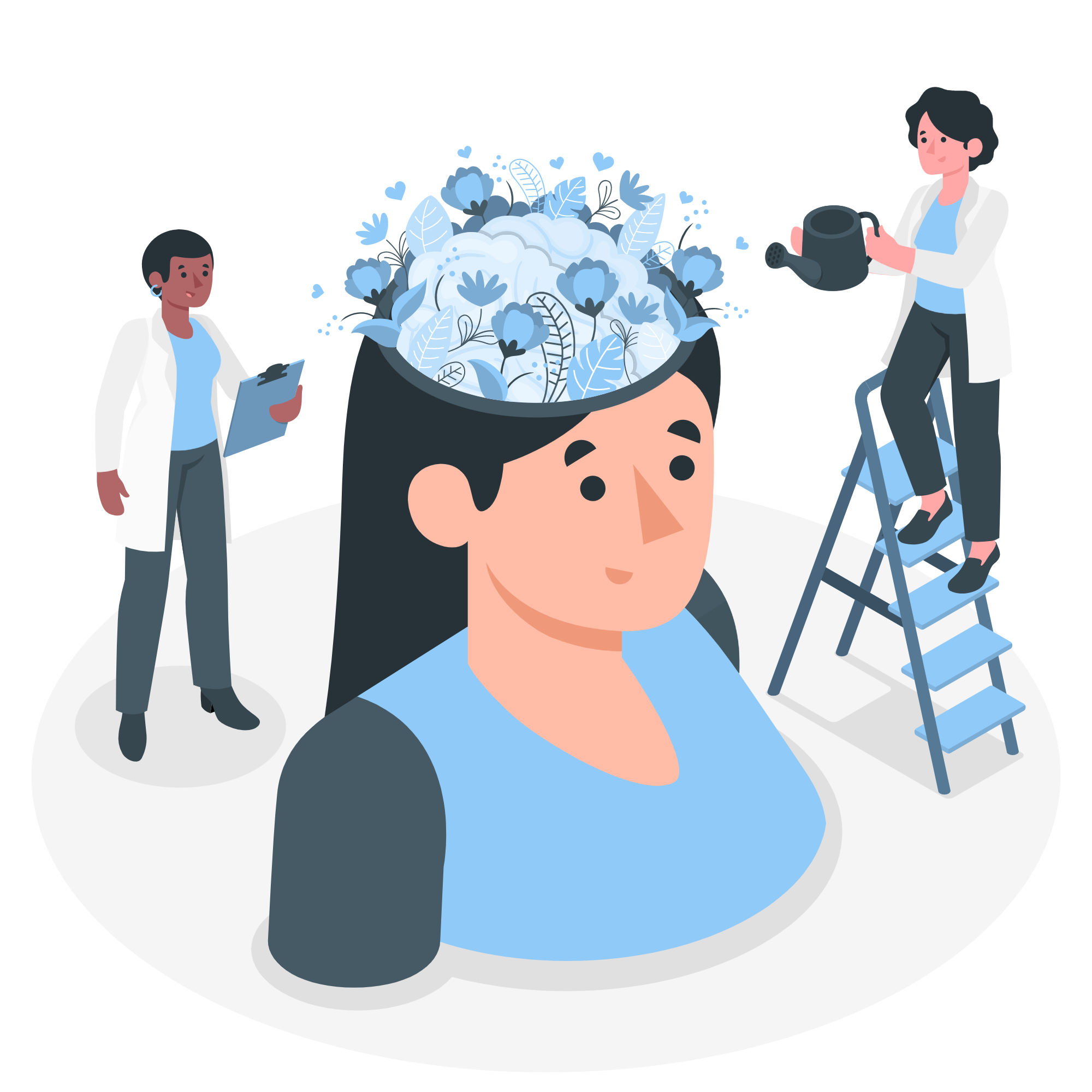
All major payers cover TMS treatment for Depression. If you've tried multiple antidepressants and therapy, there's a good chance your insurance covers it.
Meet Brandy Scott!
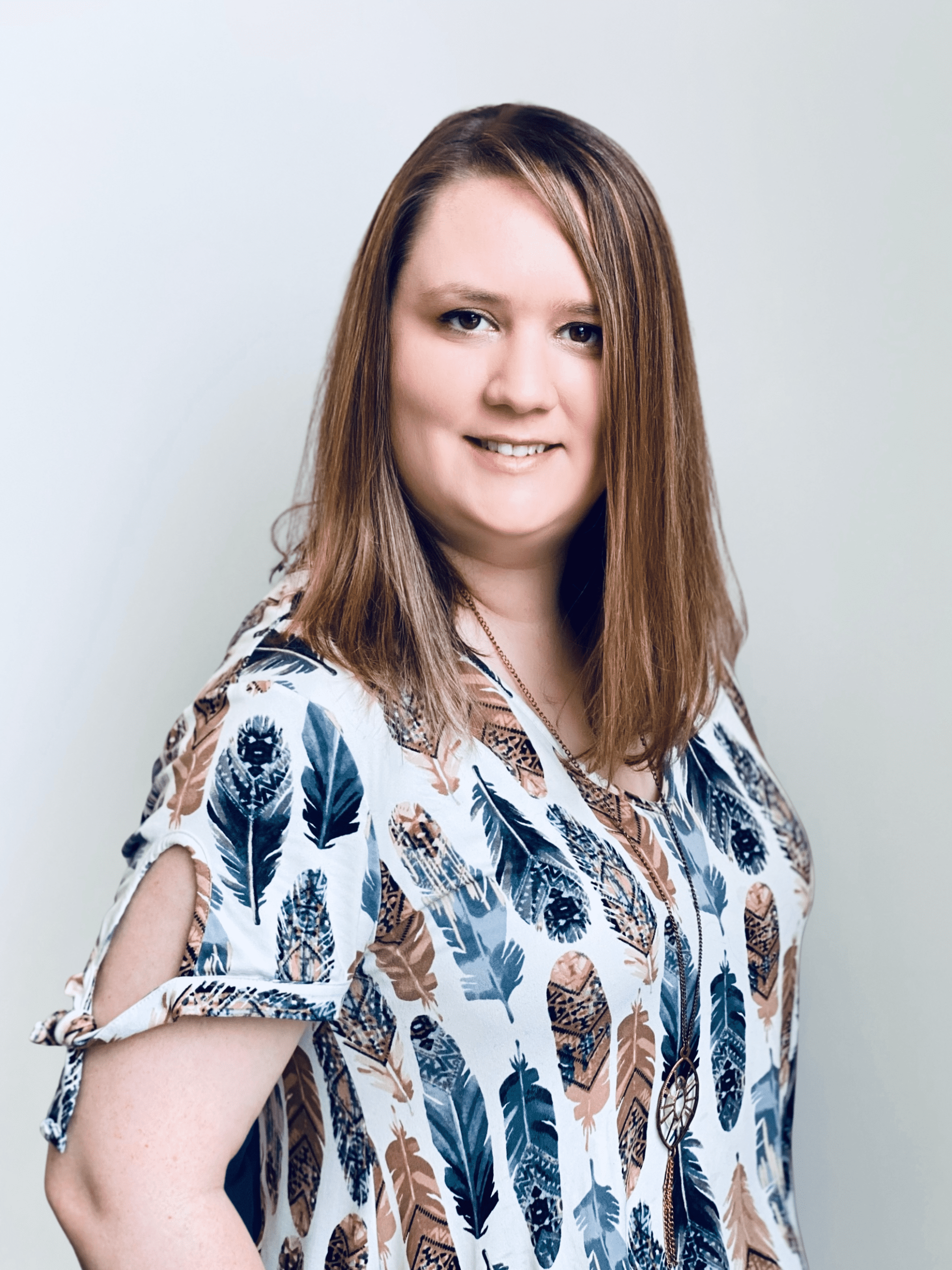
Brandy Scott, APNP, PMHNP-BC is a board certified psychiatric-mental health nurse practitioner with several years of experience in medication management and TMS therapy. She is a member of the Clinical TMS Society and the clinical lead at Win TMS. Brandy received her Bachelor of Science in Nursing degree at the University of Wisconsin – Milwaukee and completed her graduate work at the University of St. Francis – Joliet, specializing in psychiatry and mental health.
She has worked at many teaching hospitals in the area, including Froedtert and Children’s Wisconsin. Brandy enjoys keeping up on the new treatment modalities available for mental health and loves having alternative options to medications to offer her patients.
Find Us Here
We are In-Network with
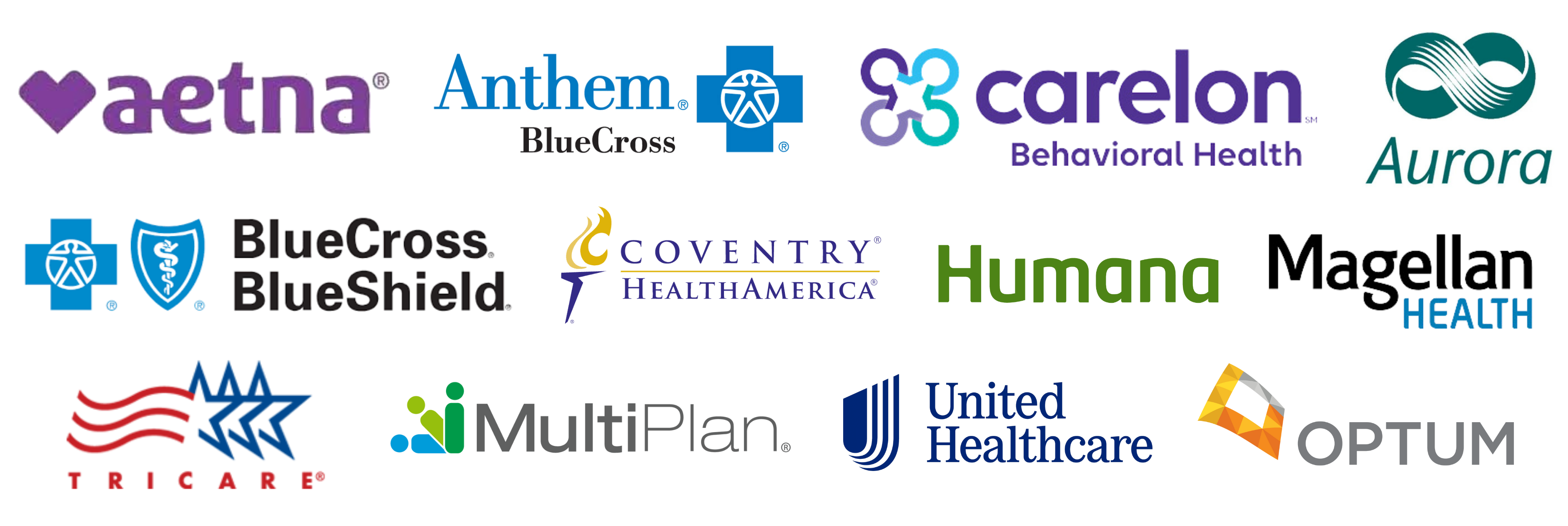
Not Sure If You Need Help?
Get instant results and feedback by taking this short quiz.
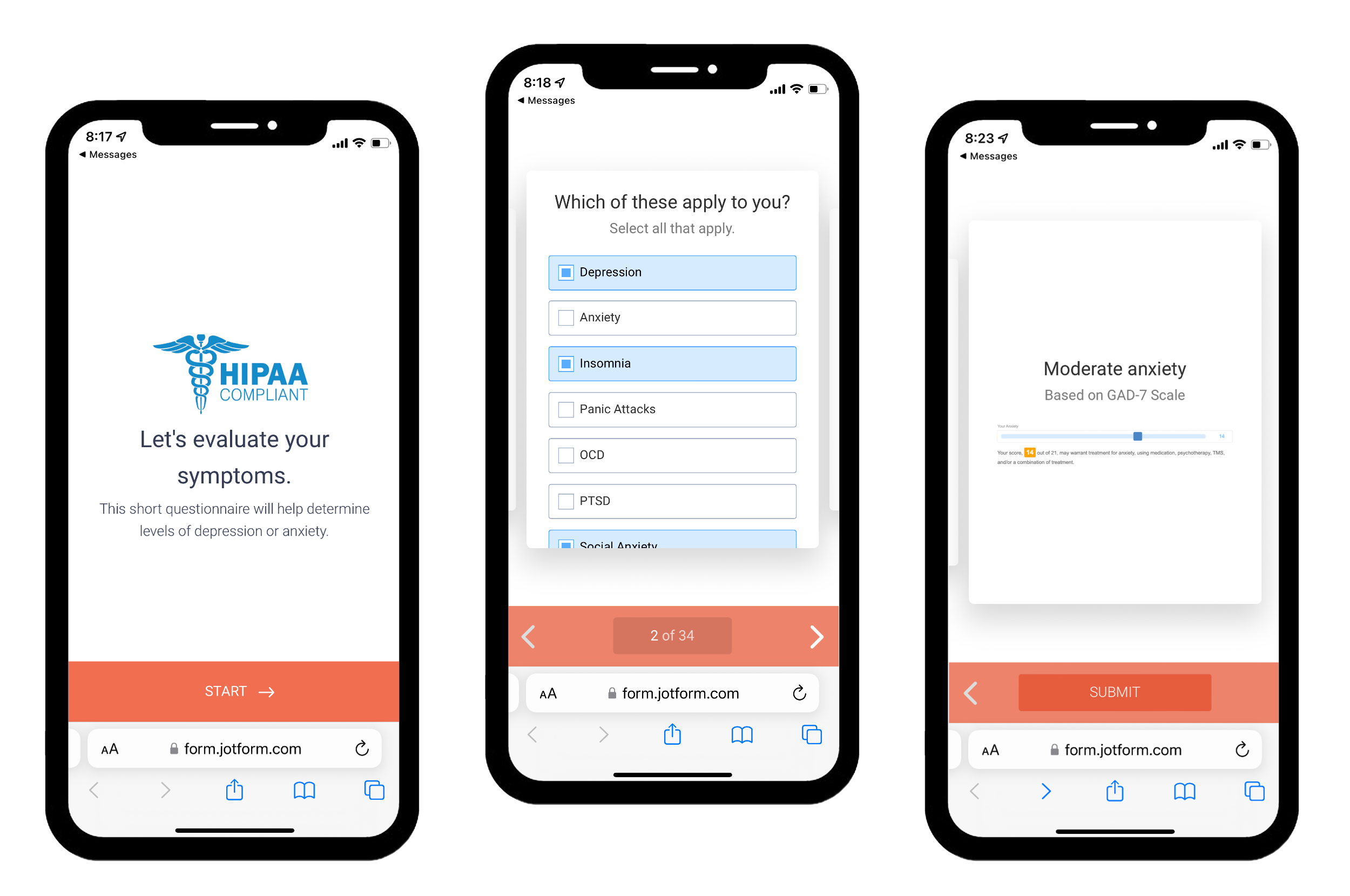
What is TMS?
TMS, or transcranial magnetic stimulation, is an alternative treatment for a variety of mental health conditions, but it is most commonly used to treat major depression and anxiety. This non-invasive therapy involves using a targeted magnetic field to stimulate under-active neurons in specific parts of the brain. TMS therapy typically takes about 6 weeks and is over 70% effective for providing long-term relief from depression symptoms.
How does TMS work?
Depression is caused by a lack of sufficient activity in the left dorsolateral prefrontal cortex, essentially the front left part of your brain. When this area is working properly, the entire brain lights up, creating an improved mood, working memory, and selective attention. TMS works by using magnetic fields to stimulate nerve cells in the brain. This is done by placing a magnetic coil near the head, which produces magnetic pulses that stimulate the nerve cells in the targeted area.
Is TMS for me?
TMS may be a good option for individuals who have not responded to traditional treatments for depression, such as medication and psychotherapy. However, it is important to speak with a mental health professional to determine if TMS is right for you.
What is TMS like? Do I feel anything?
During TMS treatment, you can sit comfortably and perform passive activities like reading a book, watching TV, or listening to music. Most patients report that TMS treatment feels like a gentle tapping sensation on the skull. Some patients experience a tingling or scalp sensitivity at the stimulation site during treatment, which can typically be mitigated by placing the device at a slightly different angle.
Are there any side effects?
The most commonly reported side effects of TMS therapy include mild headache, scalp discomfort during stimulation, and lightheadedness, all of which are typically resolved shortly after the treatment session or within the first week. Many patients report no side effects at all.
Is TMS covered by insurance?
Yes, TMS therapy is covered by almost all major insurance companies, depending on your insurance plan. Insurance plans can also have requirements for coverage, such as a prior history of antidepressant medication use or therapy treatments.
Ⓒ 2025 — http://wintmstherapy.com — All rights reserved
Business Hours
Mon: 7am - 7pm
Tues: 7am - 7pm
Wed: 7am - 7pm
Thurs: 7am - 7pm
Fri: 7am - 7pm
Sat/Sun: Closed
